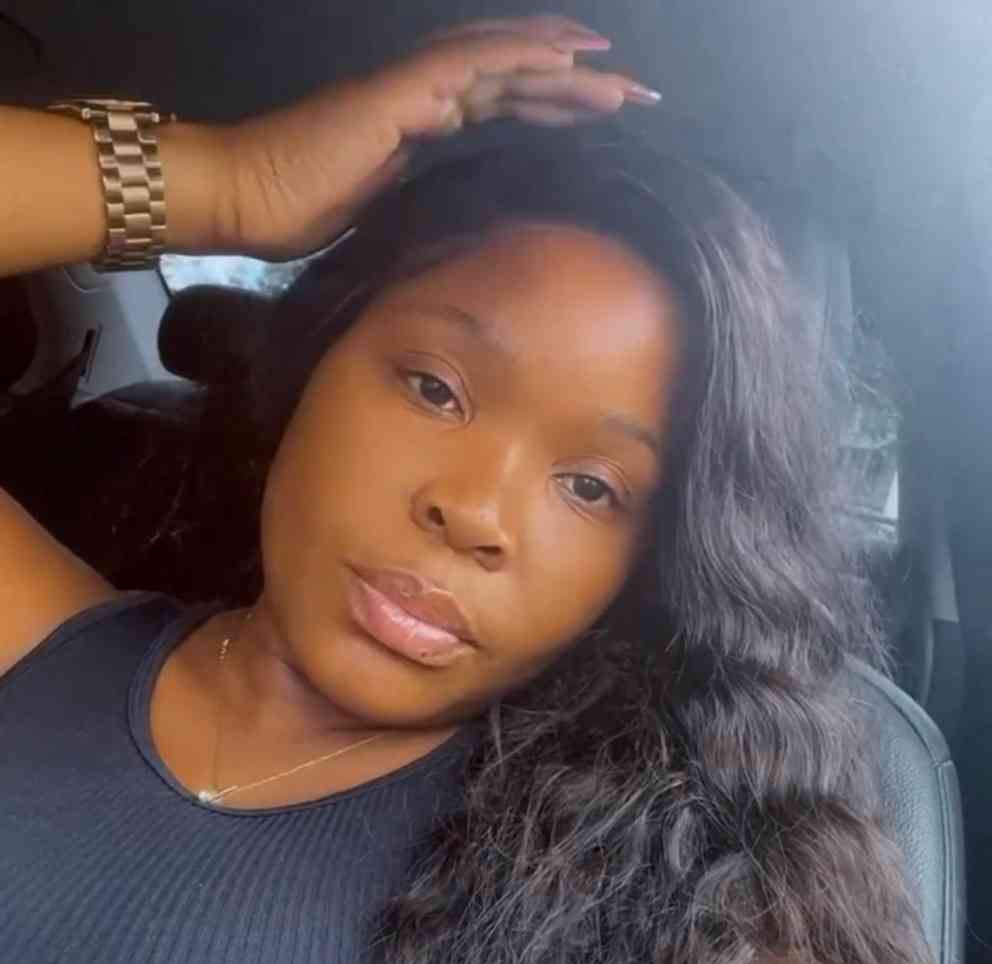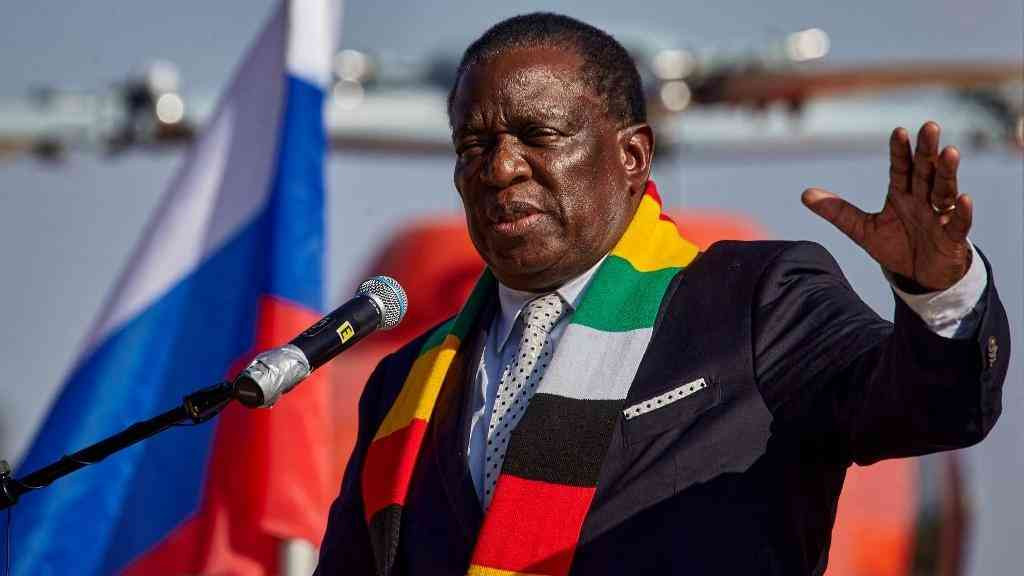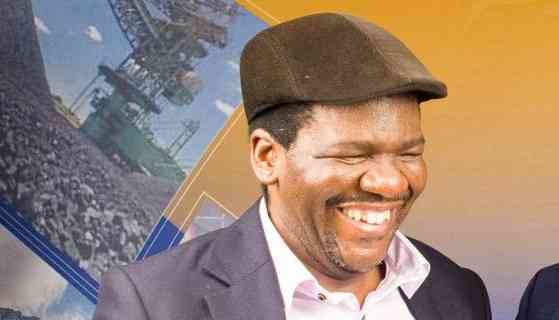Brighton Sibanda, popularly known as BS Brown, is making waves in the realms of cultural music, afro jazz and youth empowerment in Zimbabwe.
Hailing from Bulawayo and currently residing in Plumtree, Matabeleland South Province, Sibanda is not only a self-taught musician and actor but also the founder and executive director of YES Trust Zimbabwe, an international NGO dedicated to youth empowerment.
His journey in the arts began at a young age, inspired by his father, a musician in the renowned Imbube Music Group.
Growing up in a musical environment, Sibanda's early experiences at church gatherings and public events laid the groundwork for his passion for performance.
In 2008, he joined the Imbube group Ugodlwayo Omnyama, where he flourished as a composer, vocalist, trainer, and playwright.
His work with this group honed his skills and deepened his understanding of the power of music in storytelling and cultural expression.
After this, he took on roles with the Patsimeredu Edutainment Trust and the International Organisation for Migration as an information dissemination officer, furthering his commitment to using art for social change.
Sibanda founded YES Trust Zimbabwe/International with a vision to advocate for young citizens' rights to education, health, and social protection through an edutainment approach.
This organisation combines entertainment and education to address pressing issues facing the youth, creating a platform for dialogue and empowerment.
Sibanda’s efforts have earned him recognition as one of the 17 global leaders of the Global Generation Equality Action Coalition on Gender-Based Violence against women and girls, a United Nations initiative aimed at ending violence through advocacy and collaborative efforts.
An Afro jazz artist, Sibanda believes that music is a powerful tool for education and healing.
He articulates that music transcends the limitations of words, speaking directly to the spirit.
This conviction drives his motivation to use his platform as a celebrity to spread positive messages and raise awareness on critical issues affecting his community.
Sibanda's music serves multiple purposes, particularly in fostering emotional expression.
He explains: "Music is a powerful medium that transcends mere words; it speaks to our emotions, allowing us to connect on a deeper level."
This perspective underscores the ability of music to resonate with listeners, facilitating the expression of a broad range of emotions from joy and celebration to sorrow and contemplation.
By weaving personal experiences and universal themes into his lyrics, Sibanda creates an emotional tapestry that invites listeners to reflect on their own lives and feelings.
The power of emotional expression in music lies in its ability to evoke empathy and foster connections among individuals.
When listeners hear a song that articulates their feelings or experiences, it can validate their emotions and provide solace in knowing that they are not alone in their struggles.
As Sibanda notes: "When people hear my music, I want them to feel understood and seen. This connection not only enhances the listener's experience but also cultivates a sense of community, where shared feelings can lead to solidarity and support."
Moreover, emotional expression through music has therapeutic benefits, offering an avenue for individuals to process and articulate feelings that may be difficult to express otherwise.
In Sibanda's case, he often draws upon personal experiences and societal issues in his songs, which can serve as catharsis for both the artist and the audience.
For example, songs that address themes of loss, resilience, or love can help listeners navigate their own emotions, facilitating healing and understanding.
Through his emphasis on emotional expression, Sibanda highlights the transformative potential of music.
It becomes more than just entertainment; it serves as a vital tool for communication and connection in a world often marked by isolation.
By fostering these emotional connections, Sibanda not only enriches the musical landscape but also contributes to the broader dialogue on mental health and emotional well-being in his community.
This aspect of his artistry underscores the significance of music as a powerful vehicle for expressing the complex emotions of life, making it a vital part of the human experience.
Sibanda’s music is a powerful medium for storytelling, as he uses his lyrics to share personal narratives and unique perspectives, inviting audiences into the rich tapestry of his experiences.
He states: "Every song I write is a story waiting to be told; it’s an invitation for listeners to step into my world and see through my eyes."
This approach not only personalises his music but also allows listeners to connect with the various themes and emotions woven throughout his songs.
By incorporating storytelling into his music, Sibanda creates relatable narratives that resonate with diverse audiences. His lyrics often address societal issues, personal struggles, and cultural heritage, allowing listeners from various backgrounds to find reflections of their own lives within his stories.
For instance, when he explores themes of love, loss, and resilience, he taps into universal experiences that many can relate to, regardless of their personal circumstances.
This storytelling aspect can be particularly impactful for listeners who may feel marginalised or unheard; and through his music, Sibanda gives voice to their experiences, fostering a sense of inclusion and understanding.
Moreover, storytelling in music serves as a bridge to cultural preservation.
Sibanda emphasises the importance of his cultural roots in his work.
"Through my songs, I aim to honor my heritage and share it with the world."
By infusing traditional narratives and cultural motifs into his music, he not only educates his audience about Zimbabwean culture but also ensures that these stories are passed down to future generations.
This is crucial in a rapidly changing world where cultural identities can be at risk of erosion.
Additionally, storytelling can evoke emotional responses that lead to greater awareness and empathy.
When listeners engage with the stories within his songs, they are encouraged to reflect on their own lives and the lives of others, fostering a deeper understanding of different perspectives.
This connection can inspire action and advocacy, as people become more aware of the challenges faced by their peers.
Sibanda’s journey illustrates the transformative power of music and its ability to bridge gaps in society.
As he continues to grow and evolve as an artist, his commitment to using music as a medium for communication and advocacy remains steadfast.
Through YES Trust Zimbabwe and his artistic endeavors, Brighton Sibanda is not only enriching the cultural landscape but also fostering positive change in the lives of young people across Zimbabwe and beyond.
*Raymond Millagre Langa is a musician, poet, orator, independent researcher and founder of Indebo edutainment Trust. You can follow on Facebook @Millagre Ray Langa, on X you can follow on #Millagre Langa, email. millagrepapito@gmail.com or indebotrust@gmail.com.





